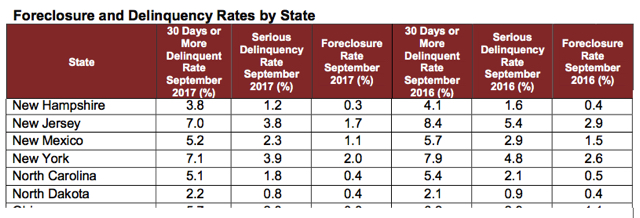This is becoming a tradition around here, so here we go again! You know how this works, break out the crystal balls and prognosticate.
Ground Rules
Predictions provided should either be for June 30th, 2018 or December 31st, 2018, please specify.
Provide justification for your forecast, where applicable (unless you are just making it up, if so, state that).
You may provide any caveats and/or assumptions that your forecast is based on.
You need not provide a forecast for all categories below.
Where applicable, forecasts are judged against the surveys/reports listed.
Real Estate
National
Existing Home Sales – NAR
Existing Home Price – S&P Case Shiller HPI
Existing Home Price – Other
National New Home Sales – NAHB
Median New Home Price – NAHB
New Jersey
Existing Home Sales – NAR/NJAR
Existing Home Price – S&P Case Shiller HPI
Existing Home Price – Other
Commodities
Energy (Oil, NatGas)
Metals (Gold, Silver, Copper)
Equities
United States
International Developed Markets
Emerging Markets
Mortgage Financing
30-Year Fixed – Freddie Mac PMMS
15-Year Fixed – Freddie Mac PMMS
Foreclosures
Delinquency Rate
Foreclosure Rate
Cybercurrencies
Date of crash
Total % decline during crash
Suicides as result of the crash
Macroeconomic
10y Treasury
Fed Funds Rate
National Unemployment Rate
New Jersey Unemployment Rate
Oddball
Anything else you’d like to make a prediction about.

